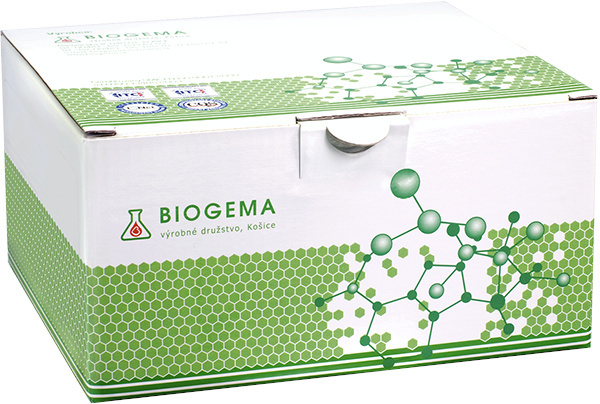
The ELISA-anti-GLIADIN deamidated IgA, IgG kit is aimed at the quantitative determination of IgA and IgG class antibodies against gliadin in human serum. It allows to determine 16 unknown samples in duplicates for the IgG and IgA classes. The antigen used in the kit is a recombinant deamidated synthetic gliadin peptide.
The determination of anti-gliadin antibodies in human serum is used to improve the diagnostic possibilities and the monitoring of the coeliac disease. The coeliac disease is a genetically conditioned auto-immune illness of children and adults. The prevalence of the coeliac disease in the population of Europe is said to be 1:100 to 1:300. The cause of the disease is wheat, barley, rye and oat intolerance. The intolerance is in regard of the proteins of the cereal endosperm – gluten; one can extract gliadin using ethanol from it, while the fraction contains approx. 50 protein ingredients. The recombinant deamidated gliadin peptide improves the specificity of the test.
The disease causes a series of changes in the mucosa of the small intestine – from an increase in the number of the interepithelial lymphocytes to the hyperplasia of crypts and the atrophy of the villi. The clinical symptoms of the coeliac disease are very variable and differ in the case of children and adults.
Typical symptoms are: diarrhea, failure to thrive, tummy pains, fatigue. One of the atypical forms is also dermatitis herpetiformis Duhring. The disease may present itself with bone pains, growth stagnation, late puberty, infertility, repeated miscarriages, anemia, osteoporosis, etc. Feared complications of the coeliac disease are gastrointestinal carcinomas and lymphomas. The cure is keeping a diet strictly free of gluten.
CONTENTS
- Break-apart strips pre-coated with antigen
- Negative control sample
- Positive control sample
- Standards: 0 – 5 – 10 – 20 – 40 – 80 U.ml-1
- Conjugate
- TMB substrate
- Diluent solution
- Wash solution
- Sulfuric acid




